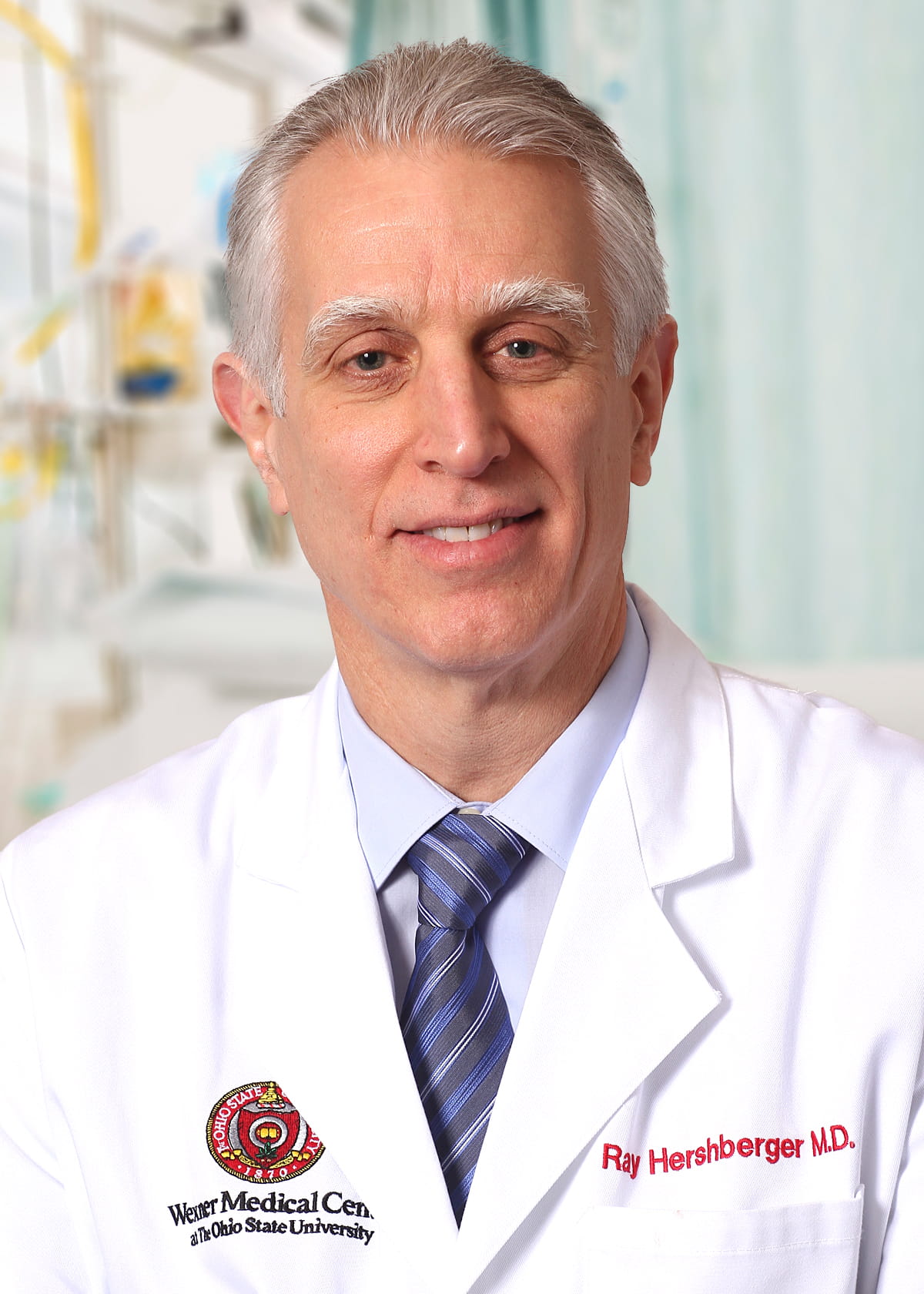September 21, 2015
COLUMBUS, Ohio – The Dilated Cardiomyopathy Consortium, led by Dr. Ray Hershberger at The Ohio State University Wexner Medical Center, has been awarded $12.4 million in grant funding by the National Heart Lung Blood Institute (NHLBI) and the National Human Genome Research Institute (NHGRI).
The Consortium, composed of researchers at 11 clinical sites, will study the genetic basis of dilated cardiomyopathy (DCM) over the next five years. The study is called “Precision Medicine for Dilated Cardiomyopathy in European and African Ancestry.”
Dilated cardiomyopathy (DCM) is a condition in which the heart muscle weakens and the left ventricle enlarges. DCM is the most common cause for patients needing a heart transplant and it is responsible for about one in three cases of heart failure.
 “Newly diagnosed DCM is commonly labeled ‘idiopathic,’ or ‘cause unknown’,” said Hershberger, a heart failure and heart transplant cardiologist and director of the Division of Human Genetics at Ohio State’s Wexner Medical Center. “A consensus has emerged that DCM in close family members results from genetic disease, however most DCM is diagnosed in people who have no obvious family connection. We hypothesize almost all idiopathic DCM has a genetic basis.”
“Newly diagnosed DCM is commonly labeled ‘idiopathic,’ or ‘cause unknown’,” said Hershberger, a heart failure and heart transplant cardiologist and director of the Division of Human Genetics at Ohio State’s Wexner Medical Center. “A consensus has emerged that DCM in close family members results from genetic disease, however most DCM is diagnosed in people who have no obvious family connection. We hypothesize almost all idiopathic DCM has a genetic basis.”Hershberger also says proving this hypothesis will transform understanding of DCM and lay the foundation for precision medicine in DCM. Precision medicine seeks to prevent disease and improve medical practice using genetic information.
With the grant funding, the researchers will conduct cardiovascular phenotyping of 1,300 people with DCM and their 5,200 family members from across the United States. The team will determine the frequency of a familial link to DCM in patients of European and African ancestry, funded by the NHLBI. Funding from the NHGRI will add families of Hispanic ethnicity.
“We believe gathering race-specific data is critical to our understandings,” Hershberger said. “Far too often, minorities are under-represented in genetic studies.”
The team will also sequence the exomes (the approximate 20,000 genes in the human genome) of individuals with DCM and then return genetic results in a randomized study to learn how to improve family-based communication of genomic risk.
This new research is the latest development in more than 20 years of Hershberger and his team looking for ways to translate discoveries about DCM genetics into prevention and early treatment.
“We believe the new information derived from this study will help physicians understand DCM as a genetic disease. This new insight will help prevent DCM in family members and the morbidity and mortality from heart failure that follows,” Hershberger said.
Hershberger and his research team are with OSU Wexner Medical Center’s Dorothy M. Davis Heart and Lung Research Institute.
Collaborating members of the Consortium include: Baptist Health South Florida, Cleveland Clinic, Houston Methodist Hospital, MedStar Health, Stanford Health Care, Tufts Medical Center, University of Maryland Medical Center, University of Mississippi Medical Center, University of Pennsylvania Health System and UW Medical Center/UW Medicine.
Additional collaborators include the departments of Genome Sciences and Bioethics and Humanities at the University of Washington and Nationwide Children’s Hospital.
To learn more about the DCM Research Project, go to: http://dcmproject.com/
###
Media Contact: Marti Leitch
Wexner Medical Center Media Relations
614-293-3737
